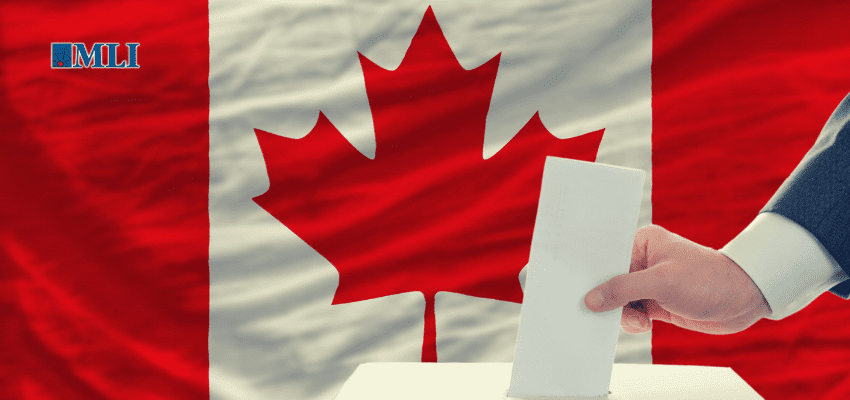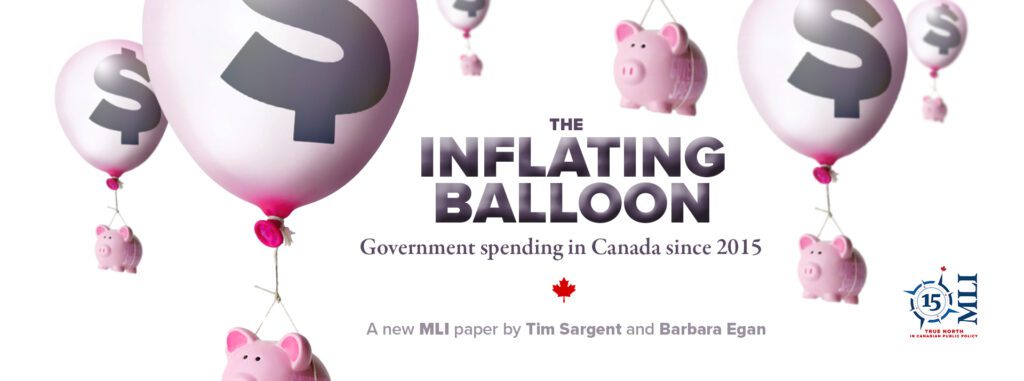This article originally appeared in Canadian Affairs.
By Jerome Gessaroli, April 7, 2025
The stakes are high as Canadians prepare to vote. The country faces aggressive U.S. tariffs, an affordability and housing crisis, and declining living standards relative to other OECD countries.
Amid the noise of campaign promises and personality politics, voters must choose between two different visions for Canada’s future — one defined by government-led solutions and the other by market-based approaches.
Rather than getting caught up in each leader’s personality, it may be more useful to consider the underlying values driving each party. After all, leaders are chosen by their party’s members and supported by the caucus. While they may have their own priorities, leaders will mostly be in sync with their party. For voters, understanding these core values may offer a better guide than relying solely on each candidate’s rhetoric.
Liberals generally see government as a way to influence social and economic outcomes. They support intervention through taxation, regulations and spending to address their priorities, such as climate change and child care. Socially, they emphasize inclusion, diversity and rights protections, viewing government as a vehicle for advancing pluralism and collective progress.
Conservatives, in contrast, place more emphasis on individuals and markets. They tend to support a more limited government that is focused on ensuring core services, order and an environment that allows private enterprises to thrive. Their approach favours lower taxes, lighter regulation and fiscal restraint. They are typically skeptical of state-led solutions and more focused on maintaining established norms.
Both parties recognize Canada’s extremely poor productivity growth record, and its importance for maintaining living standards. But their responses differ.
Liberals look to government-led strategies — including public investments in child care, education and technology — as foundations for growth. They support industrial policy and subsidies for government chosen sectors, such as clean innovation. Critics argue this has done little to raise per capita output.
Conservatives favour market-led productivity growth. They believe tax relief, deregulation and resource development attract private investment. Conservative Leader Pierre Poilievre pledges to reduce hurdles to construction, energy projects and entrepreneurship. The goal is to stimulate productivity by freeing capital and initiative. Critics counter that without public funding in emerging sectors the strategy may have limited success.
The parties also differ on fiscal policy.
The Trudeau Liberals ran deficits even during periods of economic growth. From 2016 to 2023, federal program spending rose about 10 per cent annually, up from just over two per cent from 2006 to 2015. Liberals say the increased spending boosts growth and funds important programs, while Conservatives say it adds to the national debt and raises interest expenses.
Conservatives instead focus on managing spending in order to balance budgets. In response to the 2008-2009 financial crisis, the Harper government recorded a $55 billion budget deficit. But it returned to a small surplus by 2015 through spending cuts.
A future Liberal government under Mark Carney would likely continue to run (smaller) deficits to keep debt manageable relative to GDP. New revenues may come from higher taxes on corporations. Conservatives would likely scale back the budget, cut some Liberal programs and reduce the size of the public service.
Climate policy offers perhaps the starkest contrast.
Liberals would keep regulations and subsidies to cut emissions, while Conservatives propose eliminating all carbon taxes and relaxing regulations they see as harmful to competitiveness. Their approach relies on private sector-led emissions reductions, carbon capture and other mitigation technologies. While this may lower costs for households and businesses, it could make emissions targets harder to meet.
On Indigenous matters, Liberals stress reconciliation, rights recognition and increased funding. They passed legislation recognizing UNDRIP, a United Nations declaration supporting Indigenous rights, framing the relationship as nation-to-nation. Conservatives focus more on economic opportunity, such as resource partnerships, and administrative transparency.
In health care, Liberals have increased transfers, introduced new federal programs such as dental benefits, and oppose any private involvement in the public system. Conservatives also support increased funding, but with fewer federal restrictions and are open to limited private delivery within the public health-care system.
Regarding civil liberties, Liberals prioritize protecting vulnerable groups, regulating harmful content and promoting equality, even if it means limiting some expression. Conservatives favour free speech, religious freedom and opposition to state authority. They oppose legislation such as Bill C-11, which regulates online content, and proposed online harms laws.
Headlines and photo-ops are often a distraction from what is really at stake in an election. It is by understanding parties’ values and priorities that voters can best understand how each party would govern.
Although both Liberals and Conservatives aim to improve life in Canada, they take different paths: Liberals rely on government action, while Conservatives favour private enterprise and individual initiative.
Jerome Gessaroli is a senior fellow at the Macdonald-Laurier Institute and leads the Sound Economic Policy Project at the British Columbia Institute of Technology.
The author of this piece has worked independently and is solely responsible for the views presented here. The opinions are not necessarily those of the Macdonald-Laurier Institute, its directors or supporters. The Macdonald-Laurier Institute is non-partisan and neither endorses nor supports candidates or political parties. We encourage our senior fellows to comment on public policy issues, including during election campaigns, but the publication of such expert commentary should not be confused with the institute taking a position for or against any party or candidate.







